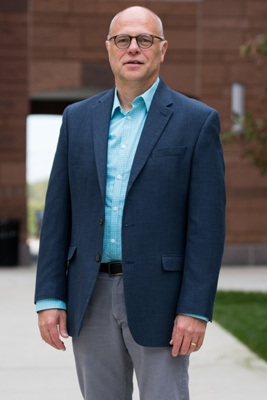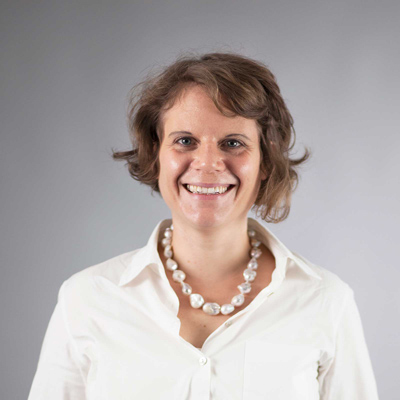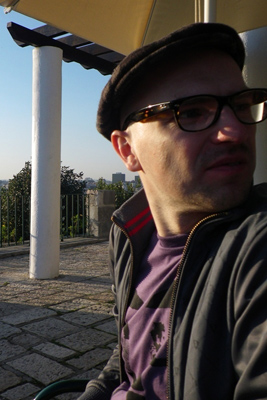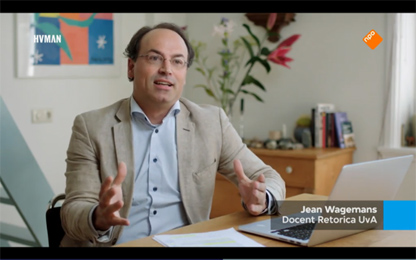Prof. Mark Aakhus
 Mark Aakhus is Professor and Associate Dean for Research in the School of Communication and Information at Rutgers University in New Brunswick, NJ, USA. He investigates the relationship between communication and design, especially the uses of technological and organizational design, to augment human interaction and reasoning for decision-making and conflict-management. He uses multiple methods from discourse analysis and computational social science to examine argumentation and social interaction in professional practice, organizational processes, and information infrastructures. He is a lead contributor in the development of the design perspective on argumentation and communication. He is currently focused on developing a Polylogue Framework for explaining the nature of argument in complex, contemporary communication and the associated computationally aided methods for analysis.
Mark Aakhus is Professor and Associate Dean for Research in the School of Communication and Information at Rutgers University in New Brunswick, NJ, USA. He investigates the relationship between communication and design, especially the uses of technological and organizational design, to augment human interaction and reasoning for decision-making and conflict-management. He uses multiple methods from discourse analysis and computational social science to examine argumentation and social interaction in professional practice, organizational processes, and information infrastructures. He is a lead contributor in the development of the design perspective on argumentation and communication. He is currently focused on developing a Polylogue Framework for explaining the nature of argument in complex, contemporary communication and the associated computationally aided methods for analysis.
Title of the training session: Analyzing argumentative contexts in public policy communication: A Polylogical Perspective
Participants will be introduced to a methodology for analyzing argumentative context in policy communication based on the Polylogue Framework ( Aakhus & Lewinski, 2017; Lewinski & Aakhus, 2014). Methods for argument analysis have increasingly focused on techniques for using context to analyze argument and, in this session, we will go a step further to consider methods for analyzing how argumentative contexts are created. Such analysis makes visible how argumentation functions to shape the content, direction, and outcomes of human face-to-face activities and their distributed activities characteristic of policy deliberations and controversies. Special attention will be given to argumentatively analyzing the many roles and many places in our digital public environments that support, mediate, or facilitate policy discourses and outcomes.
Prof. Sara Greco
 Sara Greco is senior assistant professor of argumentation at USI – Università della Svizzera italiana. She has published widely on the role of argumentation in practices of conflict resolution such as dispute mediation (see the monograph Argumentation in dispute mediation: A reasonable way to handle conflict, John Benjamins 2011) and other areas of interpersonal and societal controversies. She also investigates argumentation in (ideally) collaborative contexts such as family
Sara Greco is senior assistant professor of argumentation at USI – Università della Svizzera italiana. She has published widely on the role of argumentation in practices of conflict resolution such as dispute mediation (see the monograph Argumentation in dispute mediation: A reasonable way to handle conflict, John Benjamins 2011) and other areas of interpersonal and societal controversies. She also investigates argumentation in (ideally) collaborative contexts such as family
discussions and adult-children discussions in educational settings. She is co-author of a model for the analysis of inference and argument schemes named Argumentum Model of Topics (see the monograph Inference in argumentation: A topics-based approach to argument schemes, Springer 2019). Her approach to argumentation is empirically based, and her work is based on methods from argumentation, discourse analysis and linguistics.
Title of the training session: Reconstructing argument schemes in public policy communication: The perspective of the Argumentum Model of Topics
Summary: Participants will be introduced to a method for analyzing argument schemes (loci) in public policy communication on the basis of the Argumentum Model of Topics – AMT (Rigotti and Greco, Inference in argumentation, Springer 2019). Focusing on inference in argumentation, this model); it gives a method to reconstruct implicit premises distinguishing between inference-based premises and contextual-material premises that are (or are not) shared among discussants. Participants to the course will be invited to discuss their own examples during the seminar.
Dr. Marcin Lewinski
 Marcin Lewiński is assistant professor and the coordinator of the Reasoning and Argumentation Lab (ArgLab) at the Nova Institute of Philosophy (IFILNOVA), Nova University of Lisbon, Portugal. He is the main proposer and chair of the COST Action CA17132: European Network for Argumentation and Public Policy Analysis (APPLY). In his work, Marcin uses concepts from argumentation theory, the philosophy of language, and discourse analysis to shed light on the complexity of today’s public discourse and the resulting challenges to the rationality of argumentation, especially in deliberative contexts. He has published widely on these topics and is currently consolidating his research in the Polylogue Framework.
Marcin Lewiński is assistant professor and the coordinator of the Reasoning and Argumentation Lab (ArgLab) at the Nova Institute of Philosophy (IFILNOVA), Nova University of Lisbon, Portugal. He is the main proposer and chair of the COST Action CA17132: European Network for Argumentation and Public Policy Analysis (APPLY). In his work, Marcin uses concepts from argumentation theory, the philosophy of language, and discourse analysis to shed light on the complexity of today’s public discourse and the resulting challenges to the rationality of argumentation, especially in deliberative contexts. He has published widely on these topics and is currently consolidating his research in the Polylogue Framework.
Title of the training session: Public policy argumentation in a Polylogue Framework: Crafting positions via practical reasoning
This session will be dedicated to analyzing public policy discourse as an instance of practical reasoning, traditionally defined as reasoning about what to do (rather than what to believe). Participants will be familiarized with the basic concepts related to practical reasoning (beliefs, desires, intentions) and a specific scheme of (public) practical argumentation, resting on a comparative assessment of competing courses of action (measures, policies) to be taken (Lewiński, 2017). As such, practical argumentation will be treated as a special instance of crafting positions in a Polylogue Framework, an approach to argumentation analysis which highlights the multiplicity of competing positions, players, and places in public policies (Aakhus & Lewiński, 2017; Lewiński & Aakhus, 2014). Employing the methods introduced, participants will be engaged in detailed analyses of public argumentation related to the climate change and energy issues.
Dr. Jean Wagemans

Jean Wagemans is a philosopher specialized in rhetoric, argumentation, and debate. He is currently working as a senior researcher at the Amsterdam Center for Language and Communication (ACLC) of the University of Amsterdam. Wagemans is the initiator of the Periodic Table of Arguments, a systematic overview of dialectical and rhetorical accounts of argument schemes, fallacies, and other means of persuasion with applications in formal linguistics, corpus linguistics, and computational argumentation. He co-authored the Handbook of Argumentation Theory and Argumentation and debate (in Dutch) and published articles, book reviews, and popularizing columns on rhetoric and argumentation.
Title: Identifying arguments expressed in natural language
This session is dedicated to problems and solutions of identifying arguments expressed in natural language. It aims to increase the participants’ theoretical insight into the nature and characteristics of the various types of arguments as well as to further their practical skills in reconstructing argumentative discourse. Participants familiarize themselves with a formal linguistic approach to argument categorization called the Periodic Table of Arguments (PTA) and will be trained in using a procedure for argument type identification that is based on this categorization. During the sessions, they will present and discuss analyses of examples of arguments that play a role in their own case studies or are otherwise important for their research projects.
Contact:
 Dr. Gabrijela Kisicek, Training School Coordinator, gkisicek@ffzg.hr
Dr. Gabrijela Kisicek, Training School Coordinator, gkisicek@ffzg.hr
Gabrijela Kisicek is Assistant professor at the Department of Phonetics at the Faculty of Humanities and Social Sciences. She teaches Argumentation and History of Rhetoric for graduate students of Rhetoric, Communication skills, Public speaking, Media relations etc. at different faculties and schools.
Her research is currently focused on the prosodic aspects of multimodal argumentation. She also analyzes argumentation in political discourse and political rhetoric.
